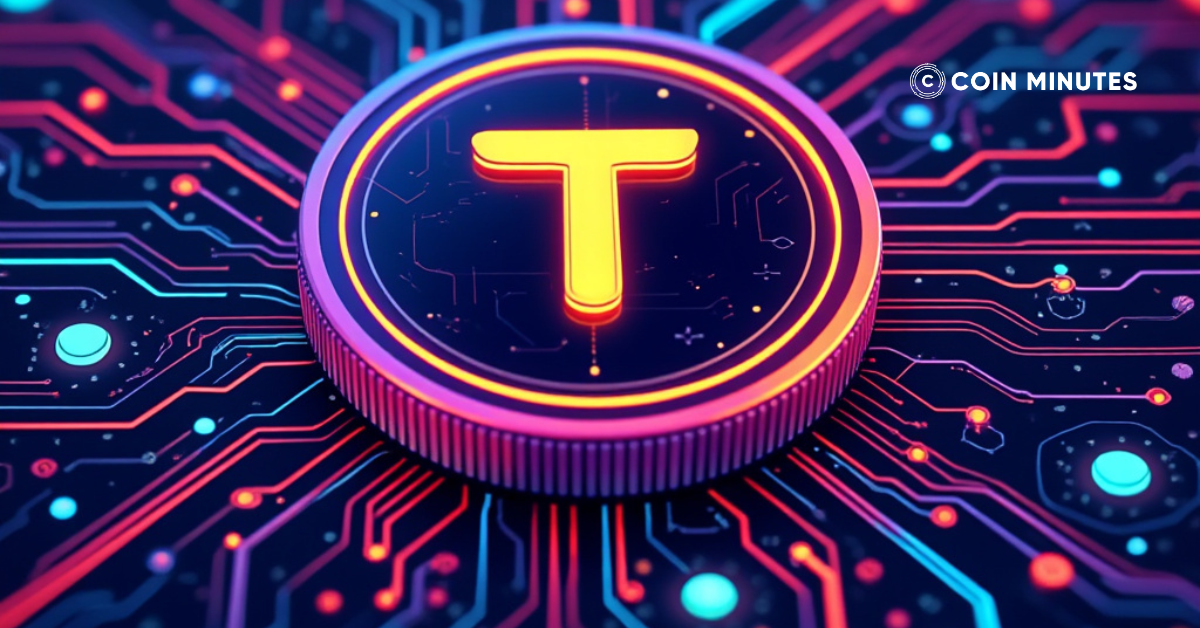Bitcoin node is essential to the Bitcoin network verifying transactions and maintaining system security. Understanding nodes helps us grasp the network’s operation and the importance of decentralization and security in blockchain technology.
What exactly is a Bitcoin node and how does it work? Join CoinMinutes in the following article to learn more!
Key Takeaways
|
What Is a Bitcoin Node?
The Bitcoin node is a computer connected to the network, adhering to rules and sharing information. It validates and relays transactions and blocks according to protocol rules. In essence, a node is a vital participant in maintaining the integrity and consensus of the Bitcoin blockchain.
How Do Nodes Work?
Nodes operate by verifying transactions and thereby transmitting them across the network. When transactions appear as “pending,” they are collected by miners or mining pools, who then incorporate them into the global ledger of the blockchain.
Instead of confirming each transaction individually, miners aggregate the pending transactions into blocks. These confirmed blocks are distributed across the network and relayed to all nodes for validation according to the network’s rules.
Once validated, the nodes append the new block to the existing blockchain, completing the process of block creation and finalizing transactions.
Types of Node
The Bitcoin network comprises various node types, each serving distinct roles and possessing unique characteristics. Full nodes are responsible for validating transactions and blocks, whereas light nodes offer simplified verification, and mining nodes participate in block creation.
Let’s delve deeper into the specific functionalities of each node type within the Bitcoin blockchain:
Full Nodes
A full node holds all blockchain data from the genesis block onward, making it a highly reliable transaction verification entity. Besides verifying transactions, full nodes store transaction history, synchronize, replicate, and distribute data, ensuring a dependable database by following protocol rules.
Light Nodes
As the second most common type of node after “full nodes”, these nodes are optimized to swiftly manage transactions and daily operations with simplicity. They are furnished with essential data and depend on full nodes to operate.
Mining Nodes
Mining nodes are responsible for generating blocks in the blockchain, akin to the familiar concept of Bitcoin mining.
Their function involves conducting computations to discover a nonce that satisfies the blockchain’s requirements. Once a mining node finds this nonce, it transmits the result to full nodes for verification, after which the full node appends the new block to the blockchain. This process consumes resources and energy, prompting mining nodes to receive rewards for block creation.
However, mining nodes solely focus on block creation and do not handle the maintenance or validation of blocks in the future, a task typically assigned to full nodes.
Pruned Nodes
The primary characteristic of a Pruned is its predefined memory limit. Once the node has downloaded the entire blockchain data, the pruning process starts, removing all data except metadata (to maintain sequence) from older blocks. It retains only the most recent entries until reaching full capacity. These nodes prioritize security functions over storage and do not hold a complete copy of the blockchain.
Lightning Nodes
To alleviate network congestion, lightning nodes facilitate off-chain transactions via distinct and offline channels. Following processing, these transactions are appended to the primary blockchain. This approach yields immediate and cost-effective transactions, effectively mitigating local strain on the blockchain.
Archival Nodes
Archival nodes retain the entire transaction history of the blockchain, serving as crucial network components by offering extensive data archives. These nodes are instrumental in verifying and restoring the blockchain, especially beneficial for applications like block explorers and wallets.
In contrast, archival full nodes preserve the complete blockchain, consuming significantly more hard drive space compared to pruned full nodes.
How to Run a Bitcoin Node?
Similar to any other software, Bitcoin software operates on physical hardware and computers. When establishing a Bitcoin node, selecting suitable hardware and software is necessary for its operation.
Bitcoin Node Software
While there are several high-quality implementations available, the vast majority of Bitcoin nodes use Bitcoin Core, the reference implementation. Unless you’re delving into Bitcoin’s technical intricacies, Bitcoin Core is likely your best choice.
Uptime and Bitcoin Nodes
Ideally, your Bitcoin node should maintain a continuous online presence and connections with peers to stay synchronized with the network and facilitate balanced queries.
Many Bitcoin users opt to dedicate a device exclusively to their Bitcoin node for added security, especially if it’s linked to their wallet or Lightning node. However, running a Bitcoin node on a desktop or laptop computer is the simplest approach.
Minimum Requirements for Bitcoin Node
The Bitcoin Core nodes have certain requirements. Trying to run a node on inadequate hardware might technically function, but it may lead to more troubleshooting. Meeting the minimum requirements to smoothly run a Bitcoin Node includes:
- Desktop or laptop hardware running recent versions of Windows, Mac OS X, or Linux.
- 7 gigabytes of available disk space, with a minimum read/write speed of 100 MB/s.
- 2 gigabytes of RAM.
- A broadband Internet connection with upload speeds of at least 400 kilobits (50 kilobytes) per second.
- An unmetered connection, one with high upload limits, or a monitored connection to prevent exceeding upload limits. Full nodes on fast connections commonly use over 200 gigabytes uploaded monthly, with initial download usage of around 20 gigabytes and an additional 340 gigabytes the first time you start your node.
- Ensure your full node can be left running for at least 6 hours a day. While your node operates, you can still use your computer for other tasks. More uptime is preferable, and continuous operation is ideal.
Note: Many operating systems, including Windows, Mac, and Linux, enter low-power modes when the screensaver activates, potentially slowing or halting network traffic. This is often the default setting on laptops and all Mac OS X devices. Adjust your screensaver settings to disable automatic “sleep” or “suspend” options to ensure uninterrupted network support whenever your computer is active.
Additionally, you should rent a VPS for more efficient node operation because:
- Running a node requires the computer to operate continuously without any downtime, which places significant maintenance pressure on the hardware.
- Although modern blockchains have high security, they are not immune to attacks, with nodes often being the primary targets for hackers.
When renting a VPS to run a Bitcoin node, you should choose a VPS with strong performance (at least 2 CPUs, 4GB RAM, and 250GB SSD), a stable and high-speed network connection, and security measures such as firewalls and DDoS protection. Select an appropriate operating system, and ensure regular data backup services and 24/7 technical support. Choosing the right VPS will help you operate your Bitcoin node efficiently and safely.
Benefits of Running a Bitcoin Node
Maintaining your node is essential for interacting with Bitcoin in a sovereign manner. Here are some benefits when you run a Bitcoin node:
- High Reliability and Security: Operating your own Bitcoin node enhances security and reliability. As a node operator, you contribute to network security by validating transactions and blocks.
- Independent Transaction Processing: Running your node means independence from third-party services for transaction processing and blockchain verification. You can ensure your transactions reach other nodes directly.
- Privacy Control: Maintaining a Bitcoin node enhances your privacy control. Unlike third-party services that may collect transaction data, running your node gives you full control over shared information.
- Contribution to Network Decentralization: Contributing to network decentralization through node operation strengthens Bitcoin’s security and stability.
How Much Is a Bitcoin Node?
Operating a Bitcoin node incurs expenses such as electricity consumption, hardware enhancements, and maintenance charges, amounting to an estimated monthly outlay ranging from $10 to $20.
The Bottom Line
Bitcoin nodes are crucial for the integrity and security of the Bitcoin network. They help validate transactions and maintain the decentralized nature of the blockchain. Understanding Bitcoin nodes provides deeper insight into the workings of blockchain technology. We hope this article has clarified their importance. Stay tuned to CoinMinutes for more cryptocurrency insights.








